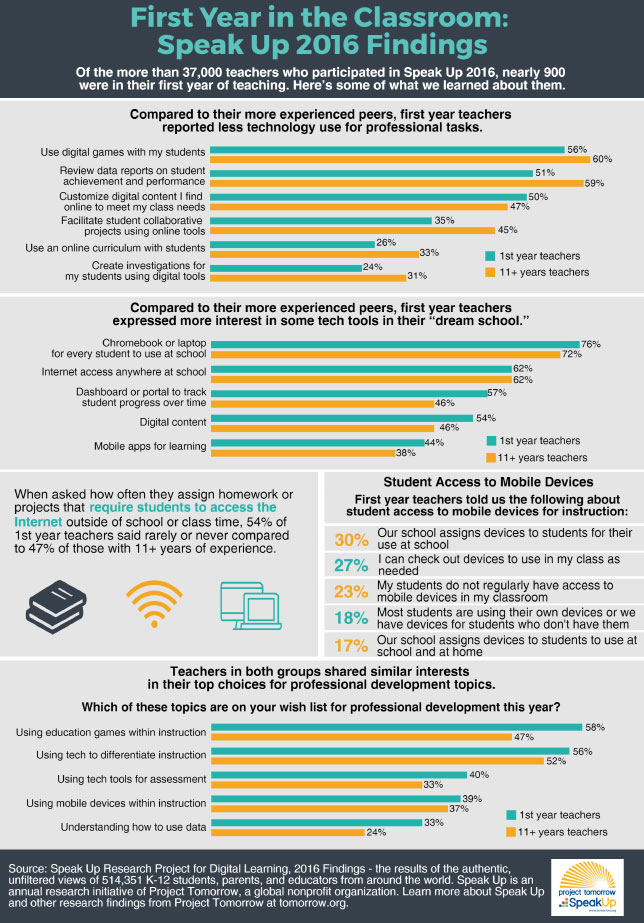First-Year Teachers More Confident in Tech but Use It Less Than Experienced Teachers
New data from a survey of more than 37,000 educators revealed that first-year teachers aren't using tech in the classroom as much as their more experienced colleagues even though they have a higher opinion of their own technological abilities.
The data, released by Project Tomorrow as part of its annual Speak Up survey, showed that compared with teachers who have been working 11 or more years in the field, first-year educators are less likely to:
- Use gaming in the classroom (56 percent of first years versus 60 percent of more experienced teachers);
- "Review data reports on student achievement and performance" (51 percent versus 59 percent);
- "Facilitate student collaborative projects using online tools" (35 percent versus 45 percent);
- "Use an online curriculum with my students" (26 percent versus 33 percent);
- "Create investigations for my students using digital tools or scientific instrumentation" (24 percent versus 31 percent);
- "Create videos of my lectures or lessons for students to watch" (16 percent versus 18 percent); and
- "Engage in online professional communities" (14 percent versus 24 percent).
The one category where first years outdid more experienced teachers was "Customize digital content I find online to meet my class needs" (50 percent versus 47 percent).

Thirty-four percent of first-year teachers rate their tech skills as "advanced" versus 27 percent of educators who have been working in the field for 11 or more years.
The new data, along with an infographic, can be accessed on Project Tomorrow's Speak Up site.